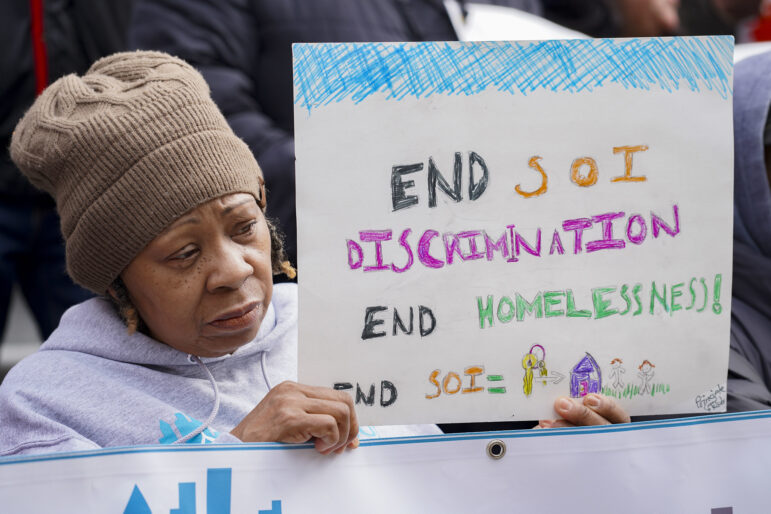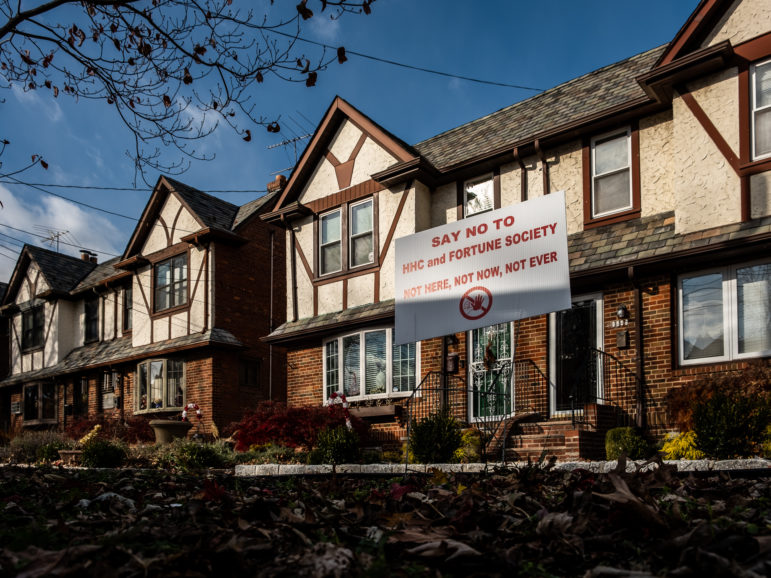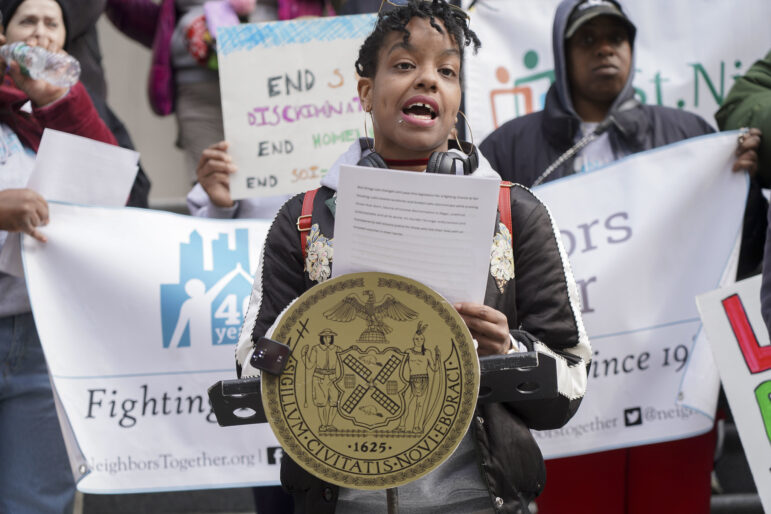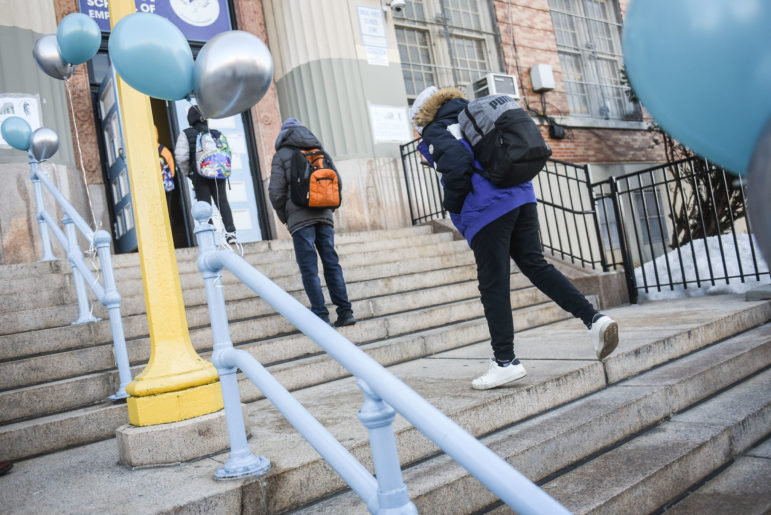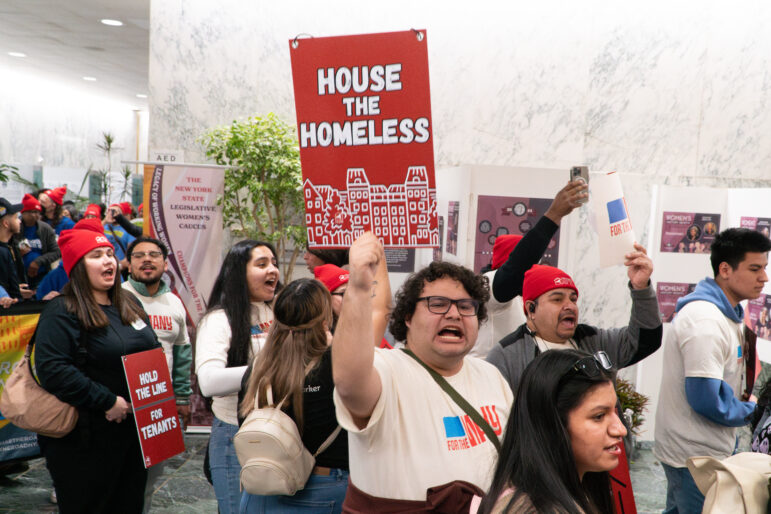The Republican Party’s 2008 platform is adorned with a striking image—a graphic of the world covered in blue-black darkness, with the lights of America’s cities beaming into the night sky. One patch of brightness emanates from Minneapolis-St. Paul, a region of 3 million people where the Republicans held their convention this year. To the south and west, another ray shines out of Denver and environs, an area of 2 million people that welcomed the Democratic Convention in August.
When they need a place to party or solicit campaign contributions, both Democrats and Republicans turn to America’s metropolises. But when it comes to campaign rhetoric, the candidates turn elsewhere—to the “real America” that dwells in the non-urban “heartland.” Cities get short shrift on the campaign trail, in speeches, debates and commercials.
But the demographic trends that have landed nearly four in five Americans in combined urban-suburban regions will be hard for our next president to overlook. Thus the two major candidates have—sometimes rather quietly—staked out positions on what to do about the leading challenges facing urban areas.
Barack Obama’s Office of Urban Policy would have a director who reports straight to him and would “develop a strategy for metropolitan America and to ensure that all federal dollars targeted to urban areas are effectively spent on the highest-impact programs.” That strategy would emphasize not so much cities themselves but metropolitan regions and involve transportation funding, creating business incubators and supporting “innovation clusters.” This approach has both political and practical advantages: while inner cities are home to only 11 percent of the U.S. population, nearly 80 percent live in “urbanized areas,” which encompass cities and their suburbs. By targeting regions, the Democratic nominee is aiming his policies at more people and his campaign message at more voters. Obama also vows to fully fund the Community Development Block Grant, an essential funding stream for many city programs.
John McCain’s campaign has weighed in on fewer policy issues and with less detail than Obama, but the Republican platform does address one city directly: the District of Columbia. “Washington,” it reads, “should be made a model city. Two major Republican initiatives—a first-time D.C. homebuyers credit and a landmark school choice initiative—have pointed the way toward a civic resurgence.”
The statement’s references to education policy and housing highlight two of the many issues affecting cities on which McCain and Obama part company – mostly in traditional ways the parties have tended to differ when it comes to cities.
Home, schools and home schooling
During his second debate with Obama, McCain announced his most sweeping housing policy – his call for the Treasury Department to use part of its $700 billion financial bailout funding to purchase distressed mortgages and renegotiate terms with the borrowers. Obama has derided that plan because it would pay full value for the mortgages. The Illinois senator has said the bailout fund should buy some distressed mortgages, but has said the purchase price must impose some cost on irresponsible lenders, too. He has also called for a freeze on foreclosures.
The Republican platform says that the federal government should “make owning a home more accessible through enforcement of open housing laws, voucher programs, urban homesteading and – what is most important – a strong economy with low interest rates.” It stipulates that whatever changes are made to the tax code, the home mortgage interest deduction ought to remain, and adds that “sound housing policy should recognize the needs of renters so that apartments and multi-family homes remain important components of the housing stock.”
The Democratic platform vows to “reform bankruptcy laws to restore balance between lender and homeowner rights,” to pass a Homebuyers Bill of Rights that includes new lending standards and to crack down on fraudulent lenders. The Democrats also commit themselves to implementing an Affordable Housing Trust Fund, restoring cuts to public housing operating subsidies and combating homelessness, especially among military veterans. Obama himself has proposed a mortgage interest tax credit to help people who don’t itemize their income tax returns and therefore don’t receive the existing mortgage interest tax deduction. He also wants to cap interest rates on payday loans at 36 percent.
In the third and final debate, McCain stressed his support for school choice. “So choice and competition amongst schools is one of the key elements that’s already been proven in places in like New Orleans and New York City and other places, where we have charter schools, where we take good teachers and we reward them and promote them,” he said. “And we find bad teachers another line of work.” He also said, “Charter schools aren’t the only answer, but they’re providing competition.” The Republican platform goes into more detail, supporting phonics, merit pay for principals, “English First” (which rejects multilingual approaches to education), school prayer and abstinence education, while denouncing social promotion. “We reject a one-size-fits-all approach and support parental options, including home schooling, and local innovations such as schools or classes for boys only or for girls only and alternative and innovative school schedules,” it reads.
Obama promises to “expand service scholarships to underwrite high-quality preparation for teachers who commit to working in underserved districts and support ongoing improvements in teacher education” and commit $10 billion to expanding early childhood education, partly through an expansion of Head Start. He says he opposes “unfunded mandates” that federal action imposes on states and cities and wants to fully fund President Bush’s signature education standards program, No Child Left Behind. Targeting the high school dropout rate, Obama has pushed a bill to improve middle school performance, arguing that “the warning signs for high school drop-outs often occur well before high school.”
Gangs and guns
Crime is obviously not solely an urban problem, as the Republicans point out in their treatment of gangs. “Gang violence is a growing problem, not only in urban areas but in many suburbs and rural communities,” it reads, before calling for tougher prosecution of gang conspiracies and deporting “illegal alien gang members.”
The GOP crime platform also backs “faith-based institutions that have proven track records in diverting young and first offenders from criminal careers,” calls for putting better technology into the hands of law enforcement and opposes “attempts to distort the electoral process by wholesale restoration of the franchise to convicted felons.”
The Democratic crime platform includes federal support “to put 50,000 police officers on the street” and for after-school programs that provide an alternative for youth to gangs. The nominee also calls for the repeal of the Tiahrt Amendment that blocks local police departments from using a federal database that tracks guns. He calls for “closing the gun show loophole and making guns in this country childproof” as well as “making the expired federal Assault Weapons Ban permanent.” Obama’s campaign calls for a ban on racial profiling; the Democratic platform supports ending “inequalities in our criminal justice system.”
Poverty and “welfare”
They said “hope” nine times, recorded 15 uses of the phrase “maverick,” mentioned “earmark” on 21 occasions and made some 40 references to “change.” Joe the Plumber got 26 shout-outs. But among all the 64,000 words uttered during six hours of debate over four weeks, neither Obama, Joe Biden, McCain, Sarah Palin, nor even the moderators and town hall participants once uttered the word “poverty.”
That’s despite the 37 million Americans who live in households with incomes at or below the federal poverty standard. The talk about domestic policy revolved around taxes, especially for those making more than $250,000. But for every American making more than a quarter million dollars a year, there are 28 people living under the poverty line.
McCain has said very little about poverty itself. In the final weeks of the campaign, however, he has often used the term “welfare.” In Miami on October 17, for instance, the Republican nominee said of Obama: “His plan gives away your tax dollars to those who don’t pay taxes. That’s not a tax cut, that’s welfare.”
While Republican campaigns have long attacked welfare, McCain’s critique applies not to actual cash relief programs like Temporary Assistance for Needy Families, but rather to Obama’s plan to expand certain tax credits that are “refundable.” Most tax credits simply reduce a payer’s tax burden, but “refundable” credits can actually be paid out to a taxpayer if the credit exceeds his or her tax liability. Some 38 percent of people who file tax returns pay no income tax. Obama’s mortgage tax credit could result in people who pay no taxes getting money back from the government. But existing tax credits, like the Earned Income Tax Credit (EITC) for working poor families, already do that.
Conservative commentators have seized on this transfer as a form of welfare—or worse, communism. “Having the government take money from business entities or affluent individuals and giving it to those who pay no federal income taxes is not Keynesian. It’s Marxist,” wrote Ken Blackwell, the former Ohio secretary of state who oversaw that state’s controversial presidential vote in 2004, on Real Clear Politics.
Absent from the critique is the fact that most businesses pay no federal income taxes, and that even workers who make too little money to owe income taxes do pay Social Security and Medicare payroll taxes. What’s more, the EITC has long had bipartisan support as an effective anti-poverty program for the working poor. By attacking refundable tax credits—of which the EITC is the largest—McCain may have broken from that tradition of support.
For his part, Obama says the United States can “cut poverty in half within ten years” by raising the minimum wage, expanding the EITC, requiring “fair pay” for women (who are the majority of adults in poverty) and launching a $1 billion transitional jobs program to train the unemployed for permanent positions. His most ambitious proposal is for creating 20 “promise neighborhoods,” modeled on the Harlem Children’s Zone, to provide comprehensive services to low-income populations. The Democratic nominee also supports expanding Nurse-Family Partnerships in which registered nurses visit expecting, low-income mothers and provide help with obtaining prenatal services, eating right before birth and handling the first months of parenthood.
Coming and going, counting and taking
Immigration policy doesn’t necessarily affect cities more than other parts of America – immigrant centers have sprung up in suburbs and small towns, after all – but the Republican platform calls for “the denial of federal funds for self-described sanctuary cities, which stand in open defiance of the federal and state statutes that expressly prohibit such sanctuary policies, and which endanger the lives of U.S. citizens.” New York City is considered one of those sanctuary cities because municipal employees are largely barred from reporting immigration violators.
Infrastructure policy’s relevance to cities is more obvious. From the collapse of a bridge in Minneapolis last year to the on-and-off discussion about a rail tunnel under New York harbor, cities are the hubs for the nation’s road, rail, air and water traffic. The Republican platform pledges “a business-like, cost-effective approach for infrastructure spending, always mindful of the special needs of both rural and urban communities.” It adds: “We need to improve the system’s performance and capacity to deal with congestion, move a massive amount of freight, reduce traffic fatalities, and ensure mobility across both rural and urban areas,” and commits the party to replenishing the highway trust fund. No reference is made to “mass transit.”
Obama says he’ll create a National Infrastructure Reinvestment Bank to better fund “existing federal transportation investments,” saying those projects will create “up to two million new direct and indirect jobs per year and stimulate approximately $35 billion per year in new economic activity.” He also vows to double funding for the Jobs Access and Reverse Commute program “to ensure that additional federal public transportation dollars flow to the highest-need communities and that urban planning initiatives take this aspect of transportation policy into account.” The Democrats pledge support for high-speed rail and light rail.
Cities—including New York—often complain that the Census undercounts their populations by failing to tally homeless people, residents of illegal boarding houses and others, leading to lower federal funding and less political power in the form of seats in the House. The 1980, 1990 and 2000 Censuses each triggered litigation over whether the Census Bureau should use statistical sampling to get a more accurate count. Republicans have always resisted those efforts, and in their platform they continued that opposition: “The census should count every person legally abiding in the United States in an actual enumeration.”
In New York and other cities, the use of eminent domain to clear land for economic development is always controversial, be it at Atlantic Yards in Brooklyn or on the area in West Harlem where Columbia University wants to create a new campus. In their platform, Republicans weigh in on the 2005 Supreme Court decision in Kelo vs. City of New London, which permits governments to take land for private uses. “That 5-to-4 decision highlights what is at stake in the election of the next president, who may make new appointments to the Court,” the platform reads. “We call on state legislatures to moot the Kelo decision by appropriate legislation, and we pledge on the federal level to pass legislation to protect against unjust federal takings.”
And culture too
As urbanites know, life in the metropolis is not just about poverty, crime and housing problems. A lively cultural life is one of the hallmarks of cities, and particularly of New York. The Democratic platform includes a section called “The Arts,” which supports art in schools and greater investment in the National Endowment for the Arts and the National Endowment for the Humanities. It also advocates the cultural exchange of artists around the world as a way to support democracy and renew America’s standing as “a cultural and artistic center.”
The GOP document is mum on artistic endeavor. But in the final debate, McCain did acknowledge another local reality that’s meaningful to almost every New Yorker, from those working in arts nonprofits to municipal offices: “The mayor of New York, Mayor Bloomberg, just imposed an across-the-board spending freeze on New York City. They’re doing it all over America because they have to.”


